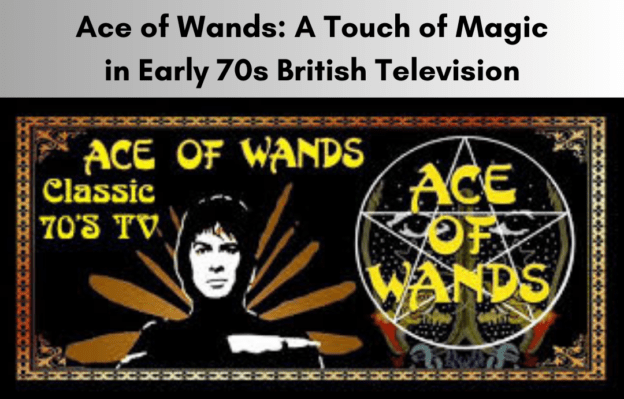Ace of Wands is a British fantasy television series that aired on ITV from 1970 to 1972, embodying the era’s fascination with the mystical and the supernatural. Created by Trevor Preston, the series featured three seasons, encompassing a total of 46 episodes, although sadly, only the final season has survived the passage of time, the earlier episodes having been wiped, as was common practice during that period.
At the heart of the show was the character Tarot, played by Michael Mackenzie, a stage magician with real supernatural abilities. Alongside his allies, the biologists Lulli (Judy Loe) and Chas (Tony Selby), and later replaced by Mikki (Petra Markham) and Sam Maxstead (Roy Holder) in the third season, Tarot navigated through a world interwoven with magic, mystery, and elements of early 70s counterculture.
The series was defined by its intriguing narratives that delved into mystical themes and featured a variety of adversaries ranging from dark sorcerers to rogue scientists. Each episode or serial often presented a moral or philosophical dilemma, transcending the mere spectacle of magic and engaging the audience in a deeper contemplation of the human experience.
“Ace of Wands” notably preceded another mystical series, “Sapphire & Steel,” in exploring abstract and supernatural themes within a serial format, setting a precedent for the exploration of such narrative spaces in British television.
Behind the scenes, Trevor Preston and Pamela Lonsdale, the series’ main creators, collaborated with a pool of talented directors and writers, crafting a show that blended esoteric lore with contemporary drama, encapsulated within a distinctly early 70s aesthetic.
Though its tenure was short-lived, “Ace of Wands” marked a fascinating moment in British television, mirroring the era’s intrigue with the unknown and the mystical, and paving the way for future explorations of the supernatural on the small screen. Over the years, it has garnered a cult following, with the final season standing as a testimony to its imaginative storytelling and enchanting characters.
The legacy of “Ace of Wands” lives on, a fragment of a time when television ventured into the mystical, teasing the boundaries between the real and the magical, and captivating audiences with its unique blend of drama and sorcery.
